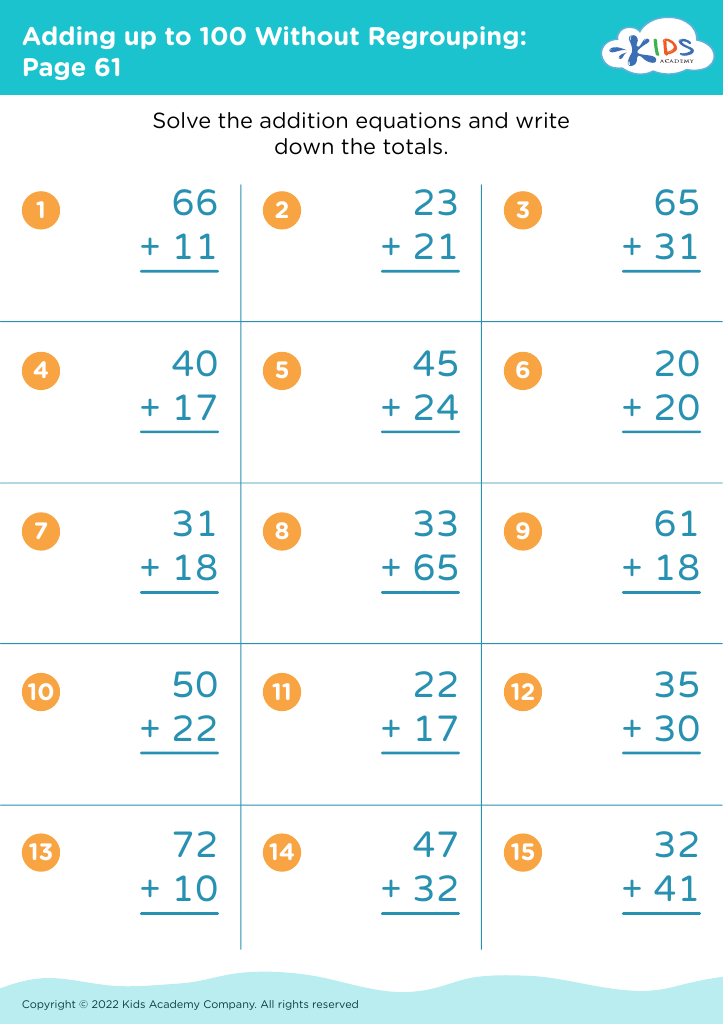Understanding division Addition Worksheets for Ages 3-7
5 filtered results
-
From - To
Help young learners embark on a mathematical adventure with our "Understanding Division Addition Worksheets for Ages 3-7." These engaging printable activities combine foundational division concepts with simple addition exercises, designed specifically for early learners. Through vibrant visuals and hands-on practice, children will grasp the basics of division while reinforcing their addition skills. Perfect for classroom use or at-home learning, these worksheets are crafted to foster a love for math from a young age. Encourage problem-solving and critical thinking with our fun, interactive resources that make learning math an exciting and enjoyable experience for children.
Understanding division and addition at an early age sets a strong foundation for essential math skills that will be used throughout life. For children aged 3-7, nurturing a grasp of these concepts can foster numerical literacy, allowing kids to approach more complex mathematical ideas with greater confidence. Mastery of addition lays the groundwork for other arithmetic operations, including multiplication and subtraction, which are indispensable in both academic settings and everyday scenarios.
Division, on the other hand, introduces children to the idea of fair sharing and equal distribution, enhancing their problem-solving abilities. At this age, children are naturally curious and able to absorb new concepts quickly, making it an ideal period for parents and teachers to introduce basic mathematical principles through engaging and age-appropriate activities.
Understanding these concepts early on encourages critical thinking, logic, and reasoning—key components in developing effective problem-solving skills. Moreover, this early exposure helps dispel math-related anxiety, making children feel more at ease when confronting numerical challenges. Parents and teachers who prioritize these early mathematic foundations are effectively empowering children with tools for academic success and instilling an enduring positive attitude towards math. This holistic approach facilitates well-rounded cognitive development, preparing children not just for school, but for various life situations where mathematical reasoning is crucial.






















